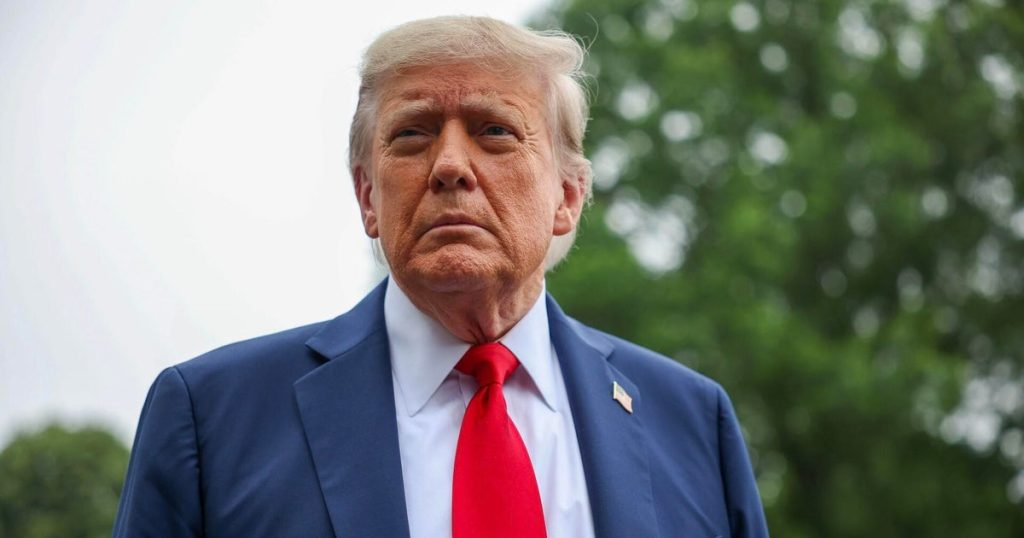The Supreme Court has recently granted the Trump administration the ability to deport migrants to third countries without first providing them the opportunity to raise claims of potential torture or persecution. This decision marks a significant victory for the administration amidst ongoing legal battles over immigration policies. Proponents argue that the ruling aids in the effective management of immigration, while dissenting justices underscore the potential violation of due process rights for migrants.
| Article Subheadings |
|---|
| 1) Overview of the Supreme Court’s Decision |
| 2) Dissenting Opinions and Concerns Raised |
| 3) The Legal Background of Immigration Policies |
| 4) Impact on Migrants Facing Deportation |
| 5) Future Implications of the Court’s Ruling |
Overview of the Supreme Court’s Decision
The Supreme Court’s ruling effectively removes a lower court’s injunction that had previously halted deportations targeting migrants from various countries, allowing the Trump administration to resume its push for expedited removals. The order, which emerged following a lengthy judicial process, signifies the court’s backing of the administration’s immigration agenda and presents a major shift in the country’s deportation policy. This decision could potentially streamline the deportation process, which has faced numerous legal hurdles, particularly relating to the treatment and rights of migrants.
Dissenting Opinions and Concerns Raised
In response to the ruling, Justices Sonia Sotomayor, Elena Kagan, and Ketanji Brown Jackson issued a dissenting opinion that captured the concerns regarding migrants’ rights and due process. Justice Sotomayor was particularly vocal, describing the majority’s decision as “inexcusable” and accusing the government of disregarding legal constraints regarding deportations. In her view, the ruling rewards unlawful actions and threatens to undermine longstanding principles of justice and fairness that are fundamental to the legal system. The dissent highlighted the need for legal processes to ensure that individuals are not subject to undue harm during deportation.
The Legal Background of Immigration Policies
The decision comes in the context of broader immigration policy efforts by the Trump administration, which has sought to expedite the deportation of migrants, particularly those arriving from Latin America. Previous court decisions had mandated that individuals facing deportation must be given written notice regarding their intended removal and provided the chance to contest those removals based on fears of persecution or torture. The new ruling effectively places the administration’s deportation strategy back on track, but it raises questions regarding the balance of authority between the executive branch and the judiciary in immigration matters.
Impact on Migrants Facing Deportation
The implications of this ruling are extensive for migrants who may be deported to nations where they fear for their safety. The legal battles surrounding third-country deportations are centered on the rights of these individuals to seek asylum and protection from harm. Recent reports have suggested that migrants from countries such as Laos, Vietnam, and the Philippines faced imminent deportation to war-torn regions like Libya and Saudi Arabia, raising alarms about their safety and well-being. Immigration advocates argue that expedited removals without due process can lead to tragic outcomes for vulnerable populations, highlighting the need for careful examination of each case before making such critical decisions.
Future Implications of the Court’s Ruling
Looking ahead, the Supreme Court’s decision could set significant precedents affecting future immigration policies and practices. The ability of the administration to operate without the constraints imposed by lower courts may lead to further challenges in the realm of immigration law. Legal experts predict that this ruling may embolden the administration to pursue more aggressive deportation tactics, potentially leading to debates about the legality and ethics of such actions. The decision could also prompt additional lawsuits from advocates aiming to protect migrant rights and ensure due process remains a fundamental aspect of the legal framework surrounding immigration.
| No. | Key Points |
|---|---|
| 1 | The Supreme Court lifted a lower court order preventing deportations to third countries. |
| 2 | Justices Sotomayor, Kagan, and Jackson dissented, emphasizing concerns over due process. |
| 3 | The ruling supports the Trump administration’s approach to immigration policy. |
| 4 | Migrants face increased risk of deportation to unsafe locations without adequate legal recourse. |
| 5 | Future immigration practices may evolve in response to the court’s ruling. |
Summary
The Supreme Court’s decision marks a pivotal moment in U.S. immigration policy, potentially reshaping the experiences of migrants facing deportation. While the administration may view this ruling as a significant victory in its immigration agenda, the dissenting opinions point to the critical need for upholding legal protections and ensuring humane treatment for individuals involved in the deportation process. As further developments unfold, the implications of this ruling will likely resonate through legal and political spheres in the months to come.
Frequently Asked Questions
Question: What does the Supreme Court ruling entail regarding deportations?
The ruling allows the Trump administration to deport migrants to third countries without first providing them the opportunity to contest their removals based on fears of torture or persecution.
Question: What are the dissenting opinions regarding the ruling?
Justices Sotomayor, Kagan, and Jackson expressed concerns that the ruling undermines due process and allows the government to act unlawfully by deporting individuals without necessary legal protections.
Question: What impact could this ruling have on future immigration policy?
The ruling may lead to more aggressive deportation tactics by the administration and could result in additional lawsuits aimed at protecting migrant rights and due process in immigration cases.


